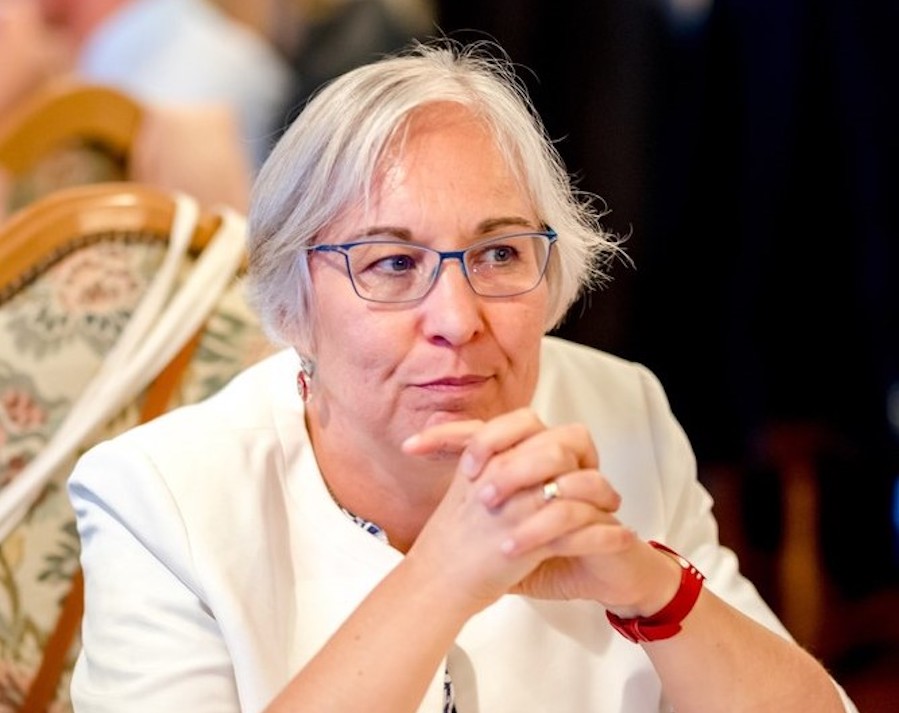03 August 2022
Supply chain security: a key challenge
Expert voice
03 August 2022

Cécile Macé is the pharmaceutical key expert for the MEDISAFE project. She is a qualified tropical medicine and public health pharmacist specializing in pharmaceutical systems, and pharmaceutical supply and regulatory systems in particular. She also has extensive experience in access issues and rational use of medicinal products. Cécile Macé spoke to Hear from the Experts about supply chain security for medicinal products, which is a crucial issue in the fight against sub-standard and falsified products. This area of work, which is recommended by the World Health Organization (WHO) and is a component of the MEDISAFE project, was central to the pharmaceutical workshop that took place during the regional seminar in Nairobi from 25-29 April 2022.
First of all, can you tell us how supply chain security is linked to the fight against falsified and sub-standard medicines and health products?
Cécile Macé: In each country, medicines and other health products reach public health facilities or private delivery points through a national to local supply chain. This supply chain involves many stakeholders (manufacturers, suppliers, importers, buyers, national procurement centers, distributors, pharmacy dispensaries, etc.) and many storage and distribution points where responsibility for the product is transferred. All the different stakeholders and transfer points represent potential entry points for sub-standard or falsified products.
It is therefore important that these supply chains are secure and that the different stakeholders in these chains are professionals whose practices are regularly monitored. This ensures that quality products are supplied to the population and avoids sub-standard or falsified products reaching them.
What is the role of MEDISAFE and the experts it works with in this regard?
C.M.: MEDISAFE supports its 11 partner countries to better identify weaknesses in supply chains. The project also encourages them to find sustainable solutions based on sharing experiences and practices among the project countries, and through insights from international experts. These experts provide pharmaceutical expertise from their practice in their own country or from their in-depth knowledge of African pharmaceutical systems.
There were many discussions at the Nairobi regional seminar about the issue of supply chain security. What emerged from these discussions?
C.M.: Particularly fruitful discussions took place between national pharmaceutical experts and international experts on the topic. Supply chain security is also considered important by project partner organizations, such as WHO and United Nations Office on Drugs and Crime (UNODC), and by the Focal Points in partner countries. It was noted during discussions that the countries have different levels of security but that all still need to work on this issue given there is still too high a presence of sub-standard or falsified products nationally.
A guide on supply chain security is being developed by MEDISAFE, can you tell us about it?
C.M.: The guide aims to provide direction to countries around specific key activities, such as monitoring supply chain stakeholders, checks to be carried out when countries import products, putting in place traceability systems and measures to strengthen storage conditions and security at both storage points and during transportation.
The guide also talks about the important role of pharmaceutical regulators at national level. These authorities must be sufficiently developed to play their role effectively. According to WHO, this is not yet the case in all MEDISAFE partner countries. Pharmaceutical regulators are responsible for protecting the population by authorizing and checking products used in the country and by granting authorizations to manufacturers and distributors. They must also regularly carry out monitoring and surveillance of the market, including receiving notifications from health workers or the public when medicinal products are suspected of being of poor quality. Their role is also to carry out investigations and take appropriate action in the event of confirmed sub-standard or falsified products. They must also work closely with customs officials and the police.
The guide, which will be finalized soon, will be used by the 11 partner countries to assess the security of their supply chains. Some countries will receive support from international experts with this process. The aim is to support them, using the guide, to identify areas of weakness and the best solutions in line with their national context.